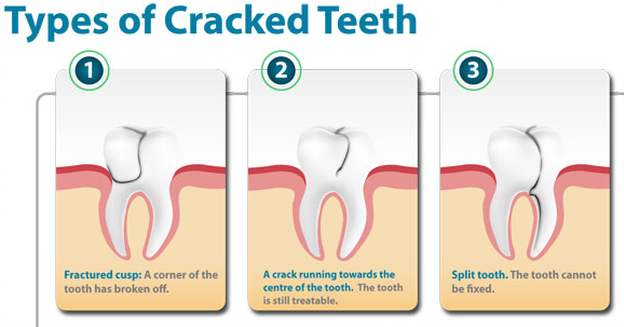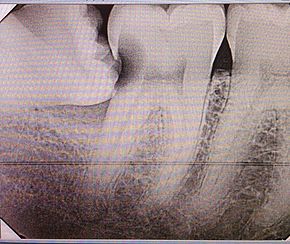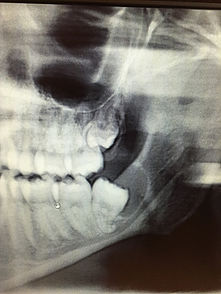Have you ever had dental pain or discomfort when biting into food or after eating/drinking something that is hot or cold? This pain or discomfort might not be constant like it is with a cavity, but intermittent. If so, it is possible you may have a cracked tooth.
There are several reasons that patients develop cracked teeth. Some situations that can result in fractured teeth are:
-
teeth with large fillings
-
teeth with root canals
-
clenching or grinding teeth
-
chewing ice or other hard foods
-
trauma to the tooth from an accident
-
too much pressure on one tooth as a result of the patient’s occlusion (the way the teeth come together in the mouth)
If the crack in the tooth does not extend further than the enamel, your dentist may not recommend any treatment. These cracks, known as craze lines, are common in adult teeth. Think of a teacup with a crack in it but that is still able to hold water without it leaking.

However, if the fracture extends beyond the enamel, it is very important to have the tooth treated. In this situation we have a leaky teacup! It can be difficult for patients to distinguish between the different types of cracks, so it is important to visit your Apex dentist so the fracture can be properly evaluated. Try to pay attention to exactly where the pain is coming from so that you can tell your dentist.

Molar are more vulnerable to cracks because they absorb most of the impact when chewing food. Front teeth are more commonly fractured due to trauma.
Your Apex dentist will determine a treatment plan based on the severity of the fracture. Treatment typically includes placing a dental crown on the cracked tooth. If the fracture effects the pulp chamber a root canal may also be necessary. If the tooth is split beyond repair, an extraction is likely necessary. In this situation tooth replacement is possible with implants or bridges.
 Postponing treatment can lead to more serious complications such as an infection or a deeper fracture. That is why it is important not to ignore warning signs or dental pain and sensitivity. By seeking treatment early, there is a typically better prognosis for the tooth. which also usually results in a lower financial cost of treatment.
Postponing treatment can lead to more serious complications such as an infection or a deeper fracture. That is why it is important not to ignore warning signs or dental pain and sensitivity. By seeking treatment early, there is a typically better prognosis for the tooth. which also usually results in a lower financial cost of treatment.



